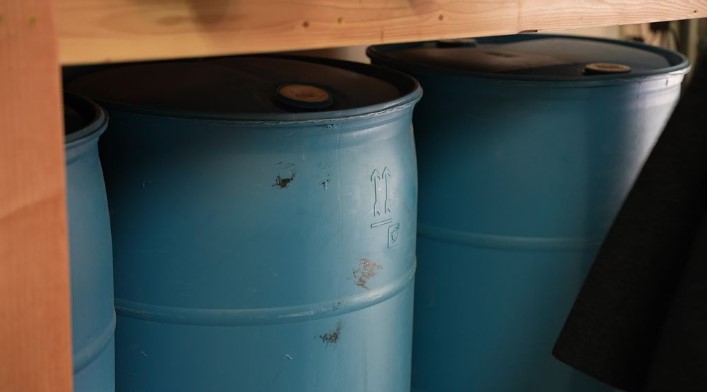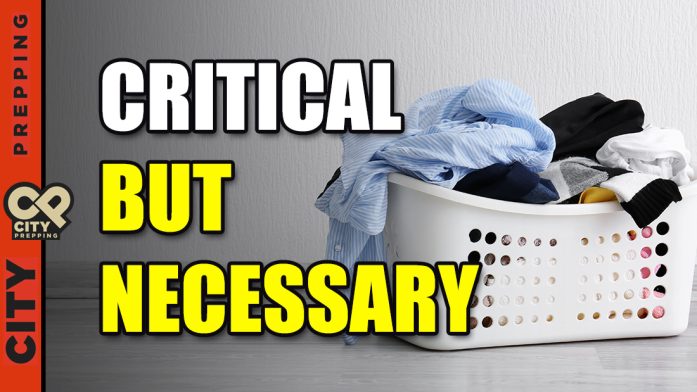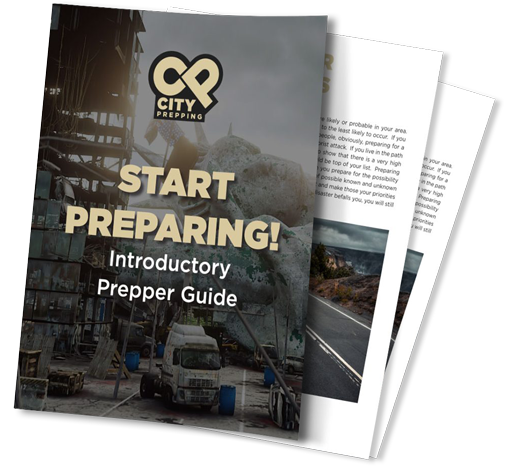So Eden sank to grief, so dawn goes down to day. Nothing gold can stay.-Robert Frost, Nothing Gold Can Stay There aren’t any new signs that a nation is on the brink of collapse. The same problems a nation faces throughout its history are the same ones when left unsolved, which fuel a nation’s fall from power. America’s present lone-superpower status is being increasingly challenged. Other great empires in the past, such as Britain, Spain, Rome, Persia, Babylon, and Egypt, have fallen, so why should America’s future be any more certain and guaranteed? The same problems that contributed to those empires falling are present today, right here in America. We face many of the same challenges, and these challenges may be signs of a coming collapse. In this video, I will take a historical look at where we appear to be in our nation’s life cycle and the five most pressing challenges we face that could very well be the signs of our imminent fall. I have to warn you that some of the five signs I discuss are highly charged political lightning rods. As you can imagine, any problem a nation collectively faces probably is highly-charged. I will do my best to address the issues and signs I see that we are facing without interjecting any bias or opinion one way or the other. You may have strong opinions for or against these signs I will discuss here, but I would ask that you hold back judgment and look at the more significant fact that these are problems in need of a solution, whatever that solution may be. Let’s explore the signs we should be paying attention to right now. The Stages of An Empire
 The famous British general John Bagot Glubb once theorized that there were seven steps in an empire’s life cycle. These were the ages of pioneers, conquests, commerce, affluence, intellect, decadence, and then the final age of decline and collapse. Each stage builds up and into the next progressively. While each country in the world probably can draw a correlation between one of the ages outlined, the United States is well progressed in the life cycle. The age of pioneers long ago passed. The age of conquest already occurred with the taking of land from the indigenous Americans and the end of slavery. The age of commerce was clearly during the industrial period, the rise of manufacturing, the completion of the railroads and highways and ports, etcetera. Capitalism ushered in a clear age of affluence. Dramatic progress in medicine and technology is the result of an age of intellect. That leaves only the age of decadence and the age of decline or collapse. Just two stages before the whole grand experiment potentially unravels forever.
Are we in the age of decadence? I would argue that we have been for quite a while. Technically, decadence is defined as “moral or cultural decline characterized by excessive indulgence in pleasure or luxury.” You don’t have to look too far to find someone who would argue that Americans have been on a moral and cultural decline for many years. We often revere what we call the good old days and lament and rail against progressive ideologies and change. I won’t argue for or against that. Still, I will posit that we live in an age characterized by excessive indulgence in pleasure or luxury, even if those luxuries are what we consider the trappings of everyday life.
When you turn on the tap water faucet, instead of shuffling back and forth to a well, you rely upon a municipal water supply or equipment built to tap your well. When an item breaks, and with a few clicks of a mouse, you have ordered a replacement from Amazon that will be delivered tomorrow; that is definitely a luxury over repairing the item yourself. When you are hungry and place an order online or through your smartphone at any one of a thousand places to have it delivered to your door, that is definitely a luxury versus harvesting, hunting, foraging, and cooking your food. A just-in-time manufacturing and distribution system is the pinnacle of the age of decadence. Like an addictive drug, we have become dependent upon fragile systems and have lost touch with traditional ways of sustaining ourselves.
If we accept that we are in that stage of our civilization, we can examine our system’s weaknesses to see how far along we are. Just as there were specific causes for the decline of other societies, we can apply what we learned from earlier cultures to see if our weaknesses align and how close we are to our own collapse. Here are the five weaknesses, the five signs, that we are possibly nearing the point of decline or destruction.
The famous British general John Bagot Glubb once theorized that there were seven steps in an empire’s life cycle. These were the ages of pioneers, conquests, commerce, affluence, intellect, decadence, and then the final age of decline and collapse. Each stage builds up and into the next progressively. While each country in the world probably can draw a correlation between one of the ages outlined, the United States is well progressed in the life cycle. The age of pioneers long ago passed. The age of conquest already occurred with the taking of land from the indigenous Americans and the end of slavery. The age of commerce was clearly during the industrial period, the rise of manufacturing, the completion of the railroads and highways and ports, etcetera. Capitalism ushered in a clear age of affluence. Dramatic progress in medicine and technology is the result of an age of intellect. That leaves only the age of decadence and the age of decline or collapse. Just two stages before the whole grand experiment potentially unravels forever.
Are we in the age of decadence? I would argue that we have been for quite a while. Technically, decadence is defined as “moral or cultural decline characterized by excessive indulgence in pleasure or luxury.” You don’t have to look too far to find someone who would argue that Americans have been on a moral and cultural decline for many years. We often revere what we call the good old days and lament and rail against progressive ideologies and change. I won’t argue for or against that. Still, I will posit that we live in an age characterized by excessive indulgence in pleasure or luxury, even if those luxuries are what we consider the trappings of everyday life.
When you turn on the tap water faucet, instead of shuffling back and forth to a well, you rely upon a municipal water supply or equipment built to tap your well. When an item breaks, and with a few clicks of a mouse, you have ordered a replacement from Amazon that will be delivered tomorrow; that is definitely a luxury over repairing the item yourself. When you are hungry and place an order online or through your smartphone at any one of a thousand places to have it delivered to your door, that is definitely a luxury versus harvesting, hunting, foraging, and cooking your food. A just-in-time manufacturing and distribution system is the pinnacle of the age of decadence. Like an addictive drug, we have become dependent upon fragile systems and have lost touch with traditional ways of sustaining ourselves.
If we accept that we are in that stage of our civilization, we can examine our system’s weaknesses to see how far along we are. Just as there were specific causes for the decline of other societies, we can apply what we learned from earlier cultures to see if our weaknesses align and how close we are to our own collapse. Here are the five weaknesses, the five signs, that we are possibly nearing the point of decline or destruction.
- Just-in-Time Manufacturing & Distribution
 The United States is clearly in the Age of Decadence. Instead of wasting money stocking raw materials and additional inventory in warehouses, companies are heavily dependent on the internet and the global shipping industry to obtain what they need as they need it. I would argue that the world is over-dependent in its reliance. As remarkable and as liberating as it is that we can click a few keys and get what we desire, it’s a significant weakness and crippling dependence. It’s akin to putting all our eggs in one basket. It is the equivalent of having just one crop in our fields. Instead of planning for the future and diversifying our access, we rely upon instant access to what we need. It’s the height of luxury. Instead of ringing a bell for the butler, we click a mouse and wait for a delivery. We rely upon a just-in-time manufacturing and distribution system that isn’t very reliable when you thoroughly examine it.
The EverGreen container ship getting stuck in the Suez Canal is a recent example of both our over-dependence on this just-in-time system and the fragility of the supply lines. The crisis highlights the vulnerability of our interconnected world. The global manufacturing and distribution network relies on goods getting where they are needed just as they are needed, with little to no margin of error. In this instance, a single ship shut down all traffic between Asia and Europe. The backup was so extreme that there was a shortage of shipping containers and some manufacturers had to halt production. The fact that one instance could create chaos from Los Angeles to Paris to Beijing underscored the extent to which our modern system of commerce has come to revolve around genuinely global supply chains.
While the failure of a global supply chain wouldn’t be the sole cause of a nation’s demise, it would certainly act as a catalyst and a compounding agitant to other rising problems in a country. The collapse of supply chains would be a clear sign a nation may be close to collapsing. From lack of food to vital parts and equipment necessary to maintain production and power generation, something as simple as the stoppage of the flow of goods could easily lead to systemic failures and a descent into chaos and mob rules. The desperation of the masses is only ever a few meals away.
The United States is clearly in the Age of Decadence. Instead of wasting money stocking raw materials and additional inventory in warehouses, companies are heavily dependent on the internet and the global shipping industry to obtain what they need as they need it. I would argue that the world is over-dependent in its reliance. As remarkable and as liberating as it is that we can click a few keys and get what we desire, it’s a significant weakness and crippling dependence. It’s akin to putting all our eggs in one basket. It is the equivalent of having just one crop in our fields. Instead of planning for the future and diversifying our access, we rely upon instant access to what we need. It’s the height of luxury. Instead of ringing a bell for the butler, we click a mouse and wait for a delivery. We rely upon a just-in-time manufacturing and distribution system that isn’t very reliable when you thoroughly examine it.
The EverGreen container ship getting stuck in the Suez Canal is a recent example of both our over-dependence on this just-in-time system and the fragility of the supply lines. The crisis highlights the vulnerability of our interconnected world. The global manufacturing and distribution network relies on goods getting where they are needed just as they are needed, with little to no margin of error. In this instance, a single ship shut down all traffic between Asia and Europe. The backup was so extreme that there was a shortage of shipping containers and some manufacturers had to halt production. The fact that one instance could create chaos from Los Angeles to Paris to Beijing underscored the extent to which our modern system of commerce has come to revolve around genuinely global supply chains.
While the failure of a global supply chain wouldn’t be the sole cause of a nation’s demise, it would certainly act as a catalyst and a compounding agitant to other rising problems in a country. The collapse of supply chains would be a clear sign a nation may be close to collapsing. From lack of food to vital parts and equipment necessary to maintain production and power generation, something as simple as the stoppage of the flow of goods could easily lead to systemic failures and a descent into chaos and mob rules. The desperation of the masses is only ever a few meals away.
- Political & Cultural Divisions
 Political and cultural divisions have heightened in recent years. Politics have gone mainstream. You may have noticed that during this last election year. Many nations in history have completely fallen apart due to racial, ethnic, and political differences. Common to all is the dehumanization of the political opposition or ethnic group. When they are dehumanized in words, the actions of a few seem to be justifiable, though they are abhorrent.
As we saw from singular occurrences of policing, whole movements can stem out of them. One incident between a few humans can explode into the streets across the nation in violent mobs. Legislatures and politicians fan the flames for personal games or earnestly scramble to legislate solutions, but the damage continues to be done. Whether the fires are contained or not remains to be seen, but there is no denying that the sparks have ignited a fire and raised the temperature. History has shown several instances where the fires were not contained. Chechnya, Armenia, Sudan, the Kurdish-Turkish conflict, Rwanda, Darfur, even in America, the Tulsa race riots 100 years ago all are sparks that turned into uncontrollable burning flames. Not all were enough to destroy a nation, but they certainly compound the decline and are a telling sign of a nation in possible decline.
Political and cultural divisions have heightened in recent years. Politics have gone mainstream. You may have noticed that during this last election year. Many nations in history have completely fallen apart due to racial, ethnic, and political differences. Common to all is the dehumanization of the political opposition or ethnic group. When they are dehumanized in words, the actions of a few seem to be justifiable, though they are abhorrent.
As we saw from singular occurrences of policing, whole movements can stem out of them. One incident between a few humans can explode into the streets across the nation in violent mobs. Legislatures and politicians fan the flames for personal games or earnestly scramble to legislate solutions, but the damage continues to be done. Whether the fires are contained or not remains to be seen, but there is no denying that the sparks have ignited a fire and raised the temperature. History has shown several instances where the fires were not contained. Chechnya, Armenia, Sudan, the Kurdish-Turkish conflict, Rwanda, Darfur, even in America, the Tulsa race riots 100 years ago all are sparks that turned into uncontrollable burning flames. Not all were enough to destroy a nation, but they certainly compound the decline and are a telling sign of a nation in possible decline.
- Weakened Borders & Increased Travel
 Weakened borders and increased travel are frequently politicized. This results in people never really understanding the problems associated with them. There was no smallpox in America until the Europeans arrived on the shores. The Spanish Flu pandemic of 1918 spread around the globe as rapidly as it did because the world was engaged in a great war, and troops were traveling worldwide. It has recently been established that even the bubonic plague, the Black Death that killed 30 to 60 percent of the European population, sprang up and spread along trade routes. The bacterium that causes the bubonic plague can survive in rodent populations and is spread to other mammals, including humans, through flea bites. The rodent population’s exposure to humans is higher along trade routes.
Even with the COVID-19 outbreak, several countries have responded by mandating a negative test result and/or quarantining before their country’s admission. Even a vaccination passport has been suggested. These countries recognize that diseases travel freely and don’t recognize national borders. And, as we have all seen this last year, one robust coronavirus can bring a nation’s economy to a grinding and shuddering halt. Real-world sicknesses have a dramatic economic impact.
It’s not just diseases, though. The world suffers from a global emigration and immigration problem. As other nations suffer or collapse, people flee to the safety and stability of safer countries. This played out on a world stage recently with war-torn Syria. Syria, Somalia, Venezuela, Sudan, Afghanistan, Myanmar, and the Democratic Republic of the Congo accounted for a staggering 20 plus million refugees worldwide. It’s not a problem that will simply go away. It’s not a problem a nation can simply ignore. Yet, immigration policies for many countries haven’t changed significantly from the century before. They aren’t likely to change rapidly in the future to keep in step with the influx of people seeking a better life. Established citizens of a nation lash out against accepting anyone into their country that differs from them culturally or would be in competition with them for resources, so deep political divisions are exacerbated. The lack of results keeping global peace and security and the lack of a comprehensive immigration policy can contribute to a nation’s decline. While the answers to these complex problems aren’t as simple as closing the gates and stopping cross-border travel, as some would have you believe, the failure to address these problems can result in the unraveling of a nation.
Weakened borders and increased travel are frequently politicized. This results in people never really understanding the problems associated with them. There was no smallpox in America until the Europeans arrived on the shores. The Spanish Flu pandemic of 1918 spread around the globe as rapidly as it did because the world was engaged in a great war, and troops were traveling worldwide. It has recently been established that even the bubonic plague, the Black Death that killed 30 to 60 percent of the European population, sprang up and spread along trade routes. The bacterium that causes the bubonic plague can survive in rodent populations and is spread to other mammals, including humans, through flea bites. The rodent population’s exposure to humans is higher along trade routes.
Even with the COVID-19 outbreak, several countries have responded by mandating a negative test result and/or quarantining before their country’s admission. Even a vaccination passport has been suggested. These countries recognize that diseases travel freely and don’t recognize national borders. And, as we have all seen this last year, one robust coronavirus can bring a nation’s economy to a grinding and shuddering halt. Real-world sicknesses have a dramatic economic impact.
It’s not just diseases, though. The world suffers from a global emigration and immigration problem. As other nations suffer or collapse, people flee to the safety and stability of safer countries. This played out on a world stage recently with war-torn Syria. Syria, Somalia, Venezuela, Sudan, Afghanistan, Myanmar, and the Democratic Republic of the Congo accounted for a staggering 20 plus million refugees worldwide. It’s not a problem that will simply go away. It’s not a problem a nation can simply ignore. Yet, immigration policies for many countries haven’t changed significantly from the century before. They aren’t likely to change rapidly in the future to keep in step with the influx of people seeking a better life. Established citizens of a nation lash out against accepting anyone into their country that differs from them culturally or would be in competition with them for resources, so deep political divisions are exacerbated. The lack of results keeping global peace and security and the lack of a comprehensive immigration policy can contribute to a nation’s decline. While the answers to these complex problems aren’t as simple as closing the gates and stopping cross-border travel, as some would have you believe, the failure to address these problems can result in the unraveling of a nation.
- Income Inequality & Working Poor
 Income inequality and the working poor are another telling sign of a nation in decline. The rhetoric about them both is also highly-charged and politicized. However, it’s important to note that income inequality was one of the primary reasons for the French revolution. As the gap widens between the haves and the have-nots, as the working man works longer and harder for the same stagnant wages while the cost of everything increases, resentment festers. There are direct correlations between increased crime and corruption during historical periods of income inequality. Both crime and corruption are corrosive forces to a nation’s stability.
The overall economics of a nation is tied to the economics of the individual. If the individual struggles too much, the nation’s economy will suffer. If the nation’s economy fails altogether, it can lead to the tipping point of a nation. As the nation unravels, so does the national order, and all the tiny weaknesses explode into more significant immediate problems. When a person works two or three jobs and sixty or more hours per week but still isn’t guaranteed food on the table and a roof over their heads, the nation faces a rising challenge. Failing to address that challenge or falling short of that challenge can have devastating results. Sometimes the nation collectively blames other countries, which leads to financial or even overt conflicts, and these can kick the can further down the road. Still, nations that have failed to address income gaps and the working poor have often met a violent demise and fall from greatness.
Income inequality and the working poor are another telling sign of a nation in decline. The rhetoric about them both is also highly-charged and politicized. However, it’s important to note that income inequality was one of the primary reasons for the French revolution. As the gap widens between the haves and the have-nots, as the working man works longer and harder for the same stagnant wages while the cost of everything increases, resentment festers. There are direct correlations between increased crime and corruption during historical periods of income inequality. Both crime and corruption are corrosive forces to a nation’s stability.
The overall economics of a nation is tied to the economics of the individual. If the individual struggles too much, the nation’s economy will suffer. If the nation’s economy fails altogether, it can lead to the tipping point of a nation. As the nation unravels, so does the national order, and all the tiny weaknesses explode into more significant immediate problems. When a person works two or three jobs and sixty or more hours per week but still isn’t guaranteed food on the table and a roof over their heads, the nation faces a rising challenge. Failing to address that challenge or falling short of that challenge can have devastating results. Sometimes the nation collectively blames other countries, which leads to financial or even overt conflicts, and these can kick the can further down the road. Still, nations that have failed to address income gaps and the working poor have often met a violent demise and fall from greatness.
- Destruction of Natural Habitats & Resource Depletion
 Many of the problems nations worldwide face are also overly politicized to the extent that the issue cannot be addressed, let alone solved, without someone somewhere trying to invalidate the problem’s premise by decrying extremism or alternative motives on the part of their opposition. That being said, the problem still exists. One of these overly politicized problems is the destruction of natural habitats and resource depletion. All politics aside, there is no other conclusion that can be drawn from the observational data other than humans are profoundly altering their earthly habitat.
Wildfires in Australia brought many animal and plant species to the brink of extinction. Massive burns in the Amazon rainforest, the very same forest that creates 20% of Earth’s oxygen and sequesters an estimated 2 billion tons of CO2, will have dramatic effects on Earth’s ecosystem. The melting of arctic permafrost releases methane at a rate we can barely keep up with the calculations. The Arctic Institute estimates “that the world’s permafrost contains up to 1,700 billion tonnes of carbon, which is almost double the amount of carbon in the Earth’s atmosphere, and four times more than what has already been emitted by humans since the Industrial Revolution. If all permafrost were degraded to the point of decomposing, the disastrous effects would be felt all over the world.“
Some of these environmental changes are human-made, and some are driven by natural cycles, but both methods feed off each other and exaggerate the resulting impact. Mining, fracking, global shipping, airline emissions, large-scale logging, and any activity that takes from the delicate ecosystem without replenishing the resource has a domino effect on other fragile systems. Why is this a possible warning sign a nation may be on the brink of collapse? It’s in the results stemming from the destruction of natural habitats and resource depletion.
As parts of the world experience drought or deluge for the first time in their recorded history, people are forced to retain or set off to seek out the resources they need to survive. As well as we think we understand the mechanics of the world, we barely do. We know hurricanes have become stronger. We know that water in volcanoes or along fault lines can have devastating effects. We know that CO2 levels continue to rise at an alarming rate and that the planet’s temperature continues to increase a little more each year globally. We know snow and ice storms and tornadoes are being experienced in areas where they had not previously occurred with such frequency. We know that cutting back natural habitats and the close proximity to exotic animal species also expose humans to countless zoonotic viruses.
It isn’t difficult to look at the extreme weather and the destruction of a harmonious ecosystem and imagine that they could be a catalyst to a nation’s decline. Weakened through pandemic or destroyed by Mother Nature, many previous empires have fallen. While this wasn’t the sole cause of their demise, it was indeed a contributor.
Conclusion
Are any of the singular indicators I address in this blog a significant enough indicator of our nation’s imminent demise? Probably not individually. The five issues discussed in this blog occurring all-at-once in an age of decadence are, at worst, signs that our nation is on the precipice. At best, they are indicators that the road ahead is even more uncertain and unstable. All of them are the reasons we prep for self-sufficiency. What do you think? Is there a sign of our decline I have overlooked or not addressed?
As always, please stay safe out there.
Many of the problems nations worldwide face are also overly politicized to the extent that the issue cannot be addressed, let alone solved, without someone somewhere trying to invalidate the problem’s premise by decrying extremism or alternative motives on the part of their opposition. That being said, the problem still exists. One of these overly politicized problems is the destruction of natural habitats and resource depletion. All politics aside, there is no other conclusion that can be drawn from the observational data other than humans are profoundly altering their earthly habitat.
Wildfires in Australia brought many animal and plant species to the brink of extinction. Massive burns in the Amazon rainforest, the very same forest that creates 20% of Earth’s oxygen and sequesters an estimated 2 billion tons of CO2, will have dramatic effects on Earth’s ecosystem. The melting of arctic permafrost releases methane at a rate we can barely keep up with the calculations. The Arctic Institute estimates “that the world’s permafrost contains up to 1,700 billion tonnes of carbon, which is almost double the amount of carbon in the Earth’s atmosphere, and four times more than what has already been emitted by humans since the Industrial Revolution. If all permafrost were degraded to the point of decomposing, the disastrous effects would be felt all over the world.“
Some of these environmental changes are human-made, and some are driven by natural cycles, but both methods feed off each other and exaggerate the resulting impact. Mining, fracking, global shipping, airline emissions, large-scale logging, and any activity that takes from the delicate ecosystem without replenishing the resource has a domino effect on other fragile systems. Why is this a possible warning sign a nation may be on the brink of collapse? It’s in the results stemming from the destruction of natural habitats and resource depletion.
As parts of the world experience drought or deluge for the first time in their recorded history, people are forced to retain or set off to seek out the resources they need to survive. As well as we think we understand the mechanics of the world, we barely do. We know hurricanes have become stronger. We know that water in volcanoes or along fault lines can have devastating effects. We know that CO2 levels continue to rise at an alarming rate and that the planet’s temperature continues to increase a little more each year globally. We know snow and ice storms and tornadoes are being experienced in areas where they had not previously occurred with such frequency. We know that cutting back natural habitats and the close proximity to exotic animal species also expose humans to countless zoonotic viruses.
It isn’t difficult to look at the extreme weather and the destruction of a harmonious ecosystem and imagine that they could be a catalyst to a nation’s decline. Weakened through pandemic or destroyed by Mother Nature, many previous empires have fallen. While this wasn’t the sole cause of their demise, it was indeed a contributor.
Conclusion
Are any of the singular indicators I address in this blog a significant enough indicator of our nation’s imminent demise? Probably not individually. The five issues discussed in this blog occurring all-at-once in an age of decadence are, at worst, signs that our nation is on the precipice. At best, they are indicators that the road ahead is even more uncertain and unstable. All of them are the reasons we prep for self-sufficiency. What do you think? Is there a sign of our decline I have overlooked or not addressed?
As always, please stay safe out there. 









One Response
You didn’t cover invasion of one country buy another to take resources and land control on the basis of the invading country expanding their influence and dominance of culture at the expense of the eradication/demise of the invaded country’s people and culture